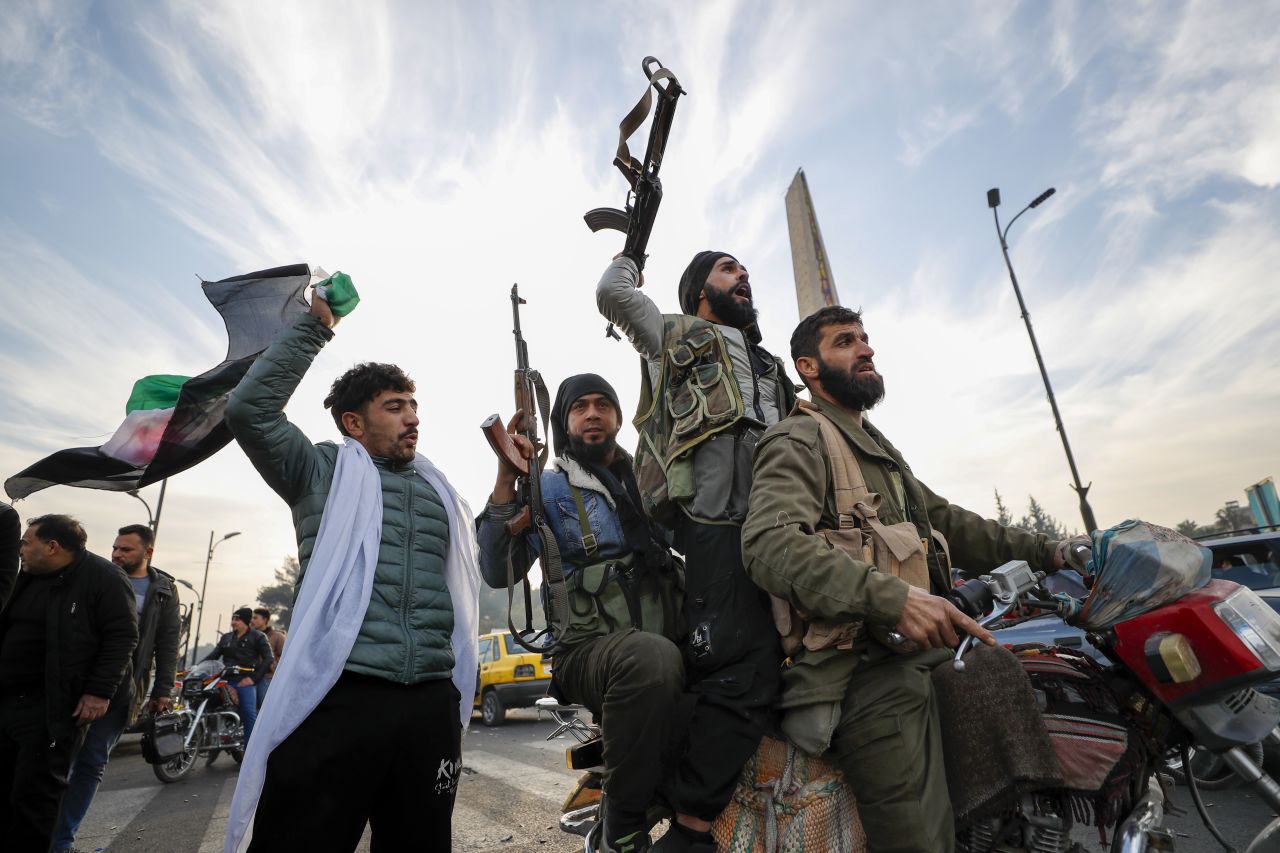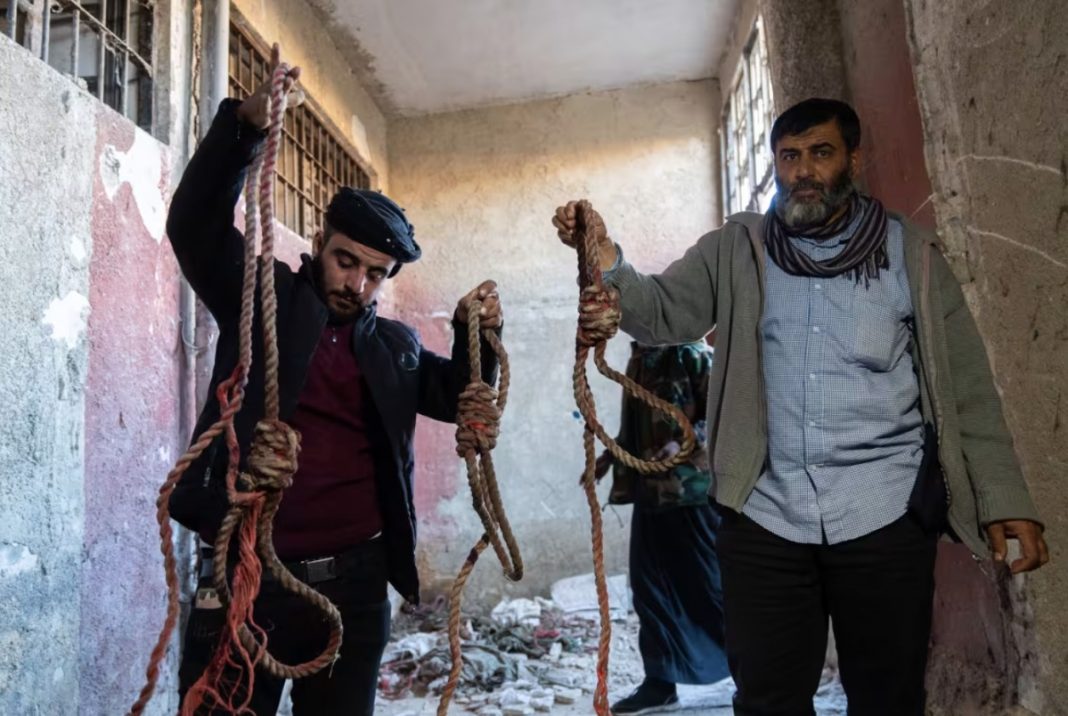DAMASCUS, Syria – In the rocky hills outside Damascus, Syrians have descended on the notorious Saydnaya military prison, desperate to uncover the fates of their loved ones following the collapse of Bashar al-Assad’s regime.
The facility, known as “the human slaughterhouse,” has long symbolised the brutality of Assad’s 50-year family rule, which used a vast network of secretive prisons to detain, torture, and kill dissenters.
On Tuesday, December 10, 2024, hundreds of Syrians armed with pry bars, pickaxes, and even a bulldozer swarmed Saydnaya, determined to access its inner horrors.
Many clutched photographs of missing relatives, shouting names in the hope someone could offer information.
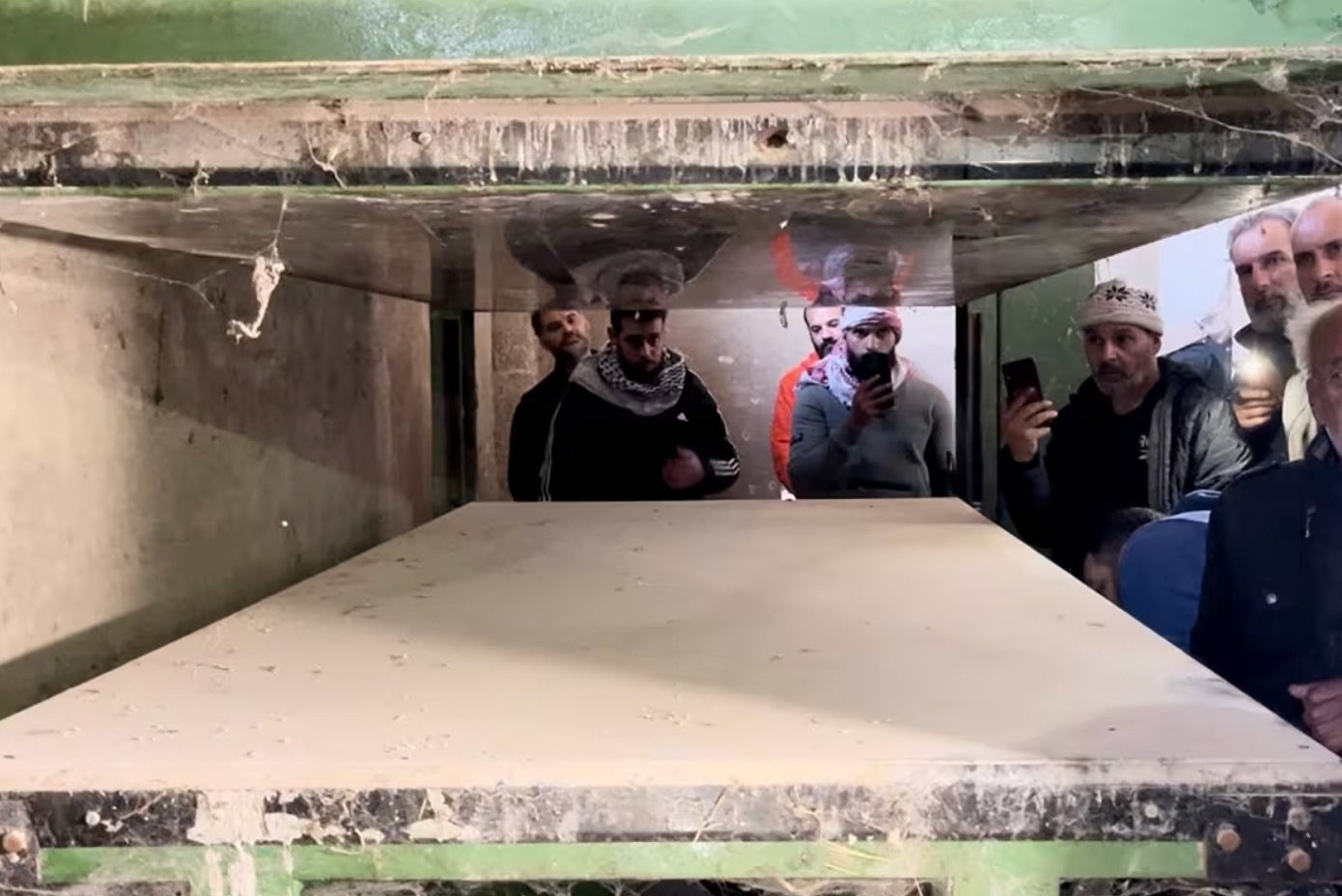
“I haven’t seen my son in ten years,” said one woman, who believes her son was imprisoned for being a nurse accused of militancy. “I have to know if he was here.”
Inside the crumbling, brutalist structure, civilians combed through cells illuminated by smartphone flashlights, uncovering chilling remnants of its dark past.
Concrete cells designed for four inmates were filled with the detritus of dozens—clothing, bedding, and personal effects strewn across the floor.
A torture device described as an “execution press”—a mechanism designed to crush prisoners—stood as a stark reminder of the facility’s grim purpose.
Another room contained a metal pole reportedly used to suspend prisoners as they were beaten. Outside, a man displayed blood-stained nooses, allegedly used for executions.
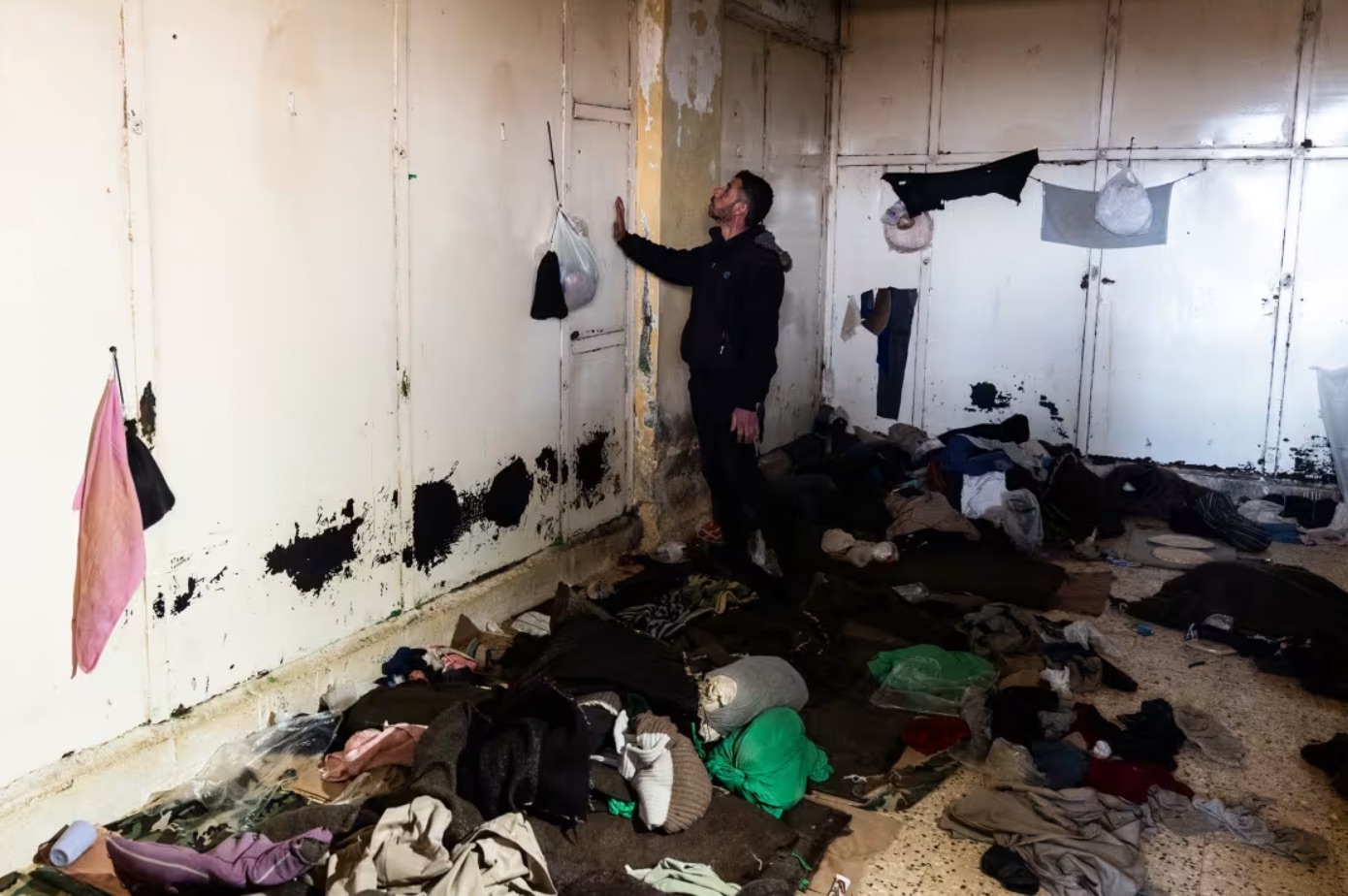
Rumours of a Secret Wing
The chaotic scene was partly driven by rumours of a hidden “red wing” beneath the prison, where some believed detainees might still be alive.
The White Helmets search and rescue organisation joined the effort to find this alleged underground chamber but declared by early Tuesday morning that there was no evidence of its existence.
“We share the profound disappointment of the families of the thousands who remain missing and whose fates remain unknown,” the group said.
Despite this, civilians continued to hammer through walls and floors, driven by hope and desperation.
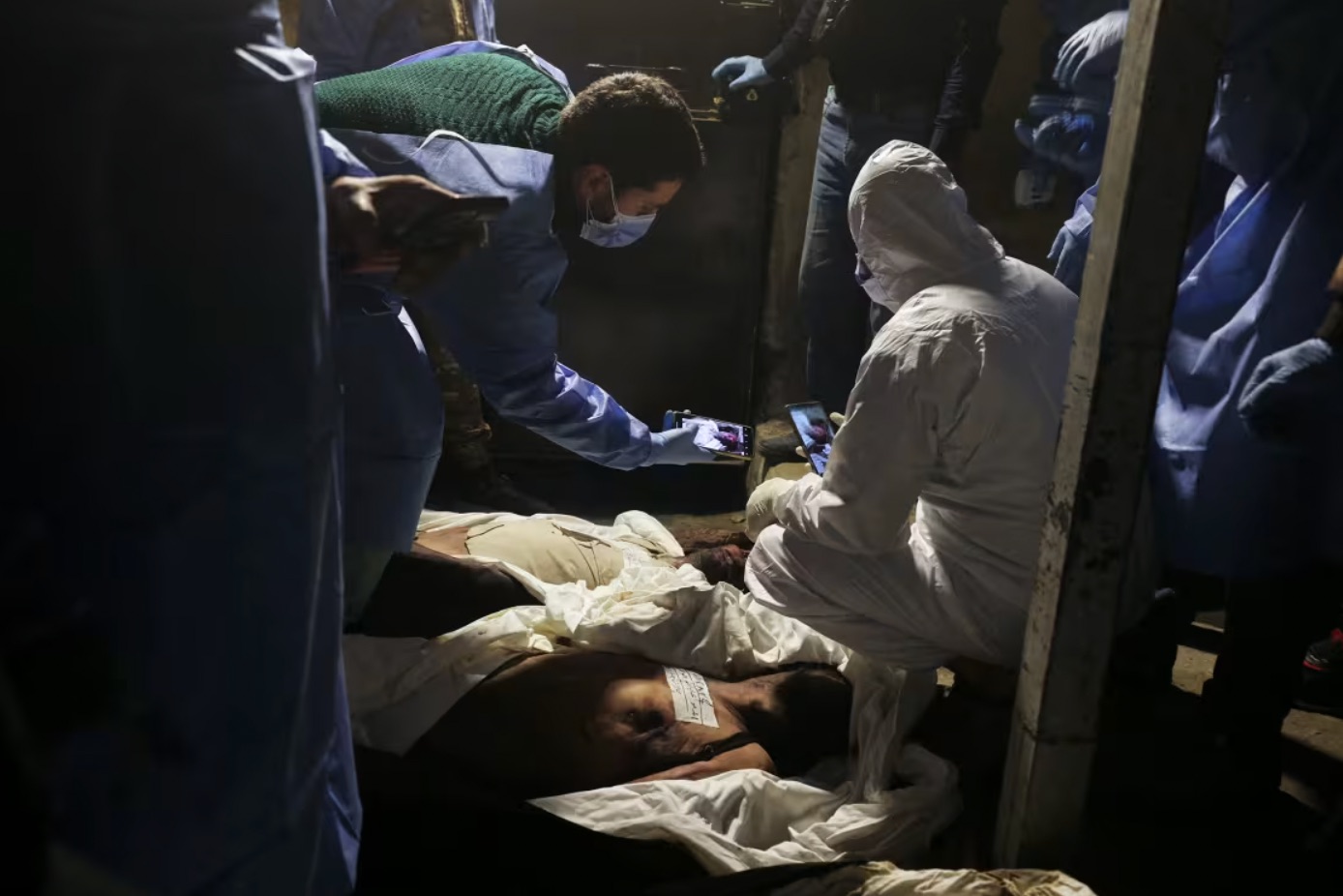
A Legacy of Horror
Saydnaya is emblematic of the Assad regime’s systematic use of state violence.
Amnesty International’s 2017 report described how detainees were regularly tortured, denied food and medical care, and subjected to conditions designed to break them physically and psychologically.
Between 2011 and 2015 alone, the Human Rights Data Analysis Group estimated 17,723 deaths in Syrian custody—almost certainly a vast undercount.
“The goal was to humiliate, degrade, and dehumanise,” Amnesty reported, noting that even during torture, prisoners were forced to remain silent, compounding their suffering and leading to severe mental illnesses.
This legacy extends back decades.
Hafez al-Assad, Bashar’s father, used enforced disappearances as a tool of repression during his rule, with an estimated 17,000 people vanishing between the 1980s and 2000.
The scale of abuses escalated drastically during the Syrian civil war, which began in 2011 after peaceful protests were violently crushed by the younger Assad.
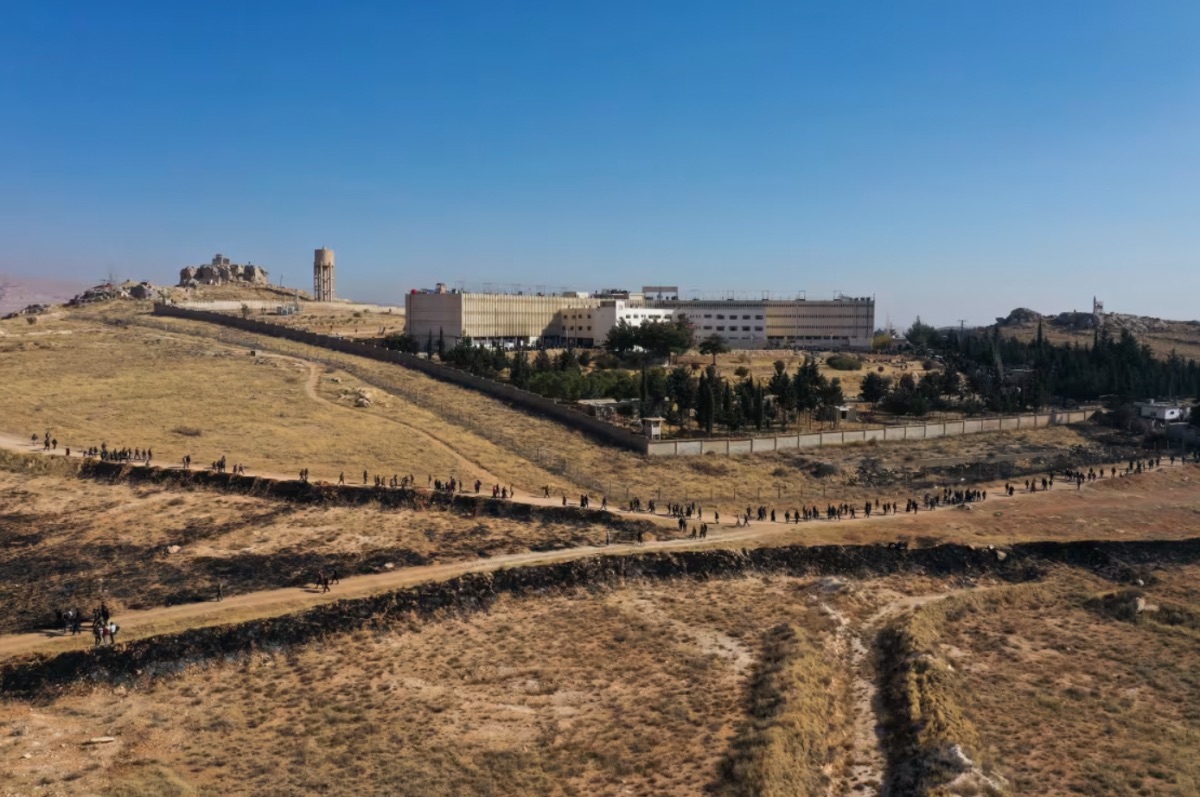
Unimaginable Loss
In Damascus, bodies of torture victims have been recovered from other sites, including Harasta hospital morgue, where around 40 corpses were found in white body bags.
Families now face the grim task of identifying their loved ones.
The conflict has claimed over 350,000 lives, according to the United Nations, a figure it acknowledges is an undercount.
For many Syrians, the fall of Assad represents the possibility of a future free from oppression—but also the monumental task of reckoning with decades of atrocities.
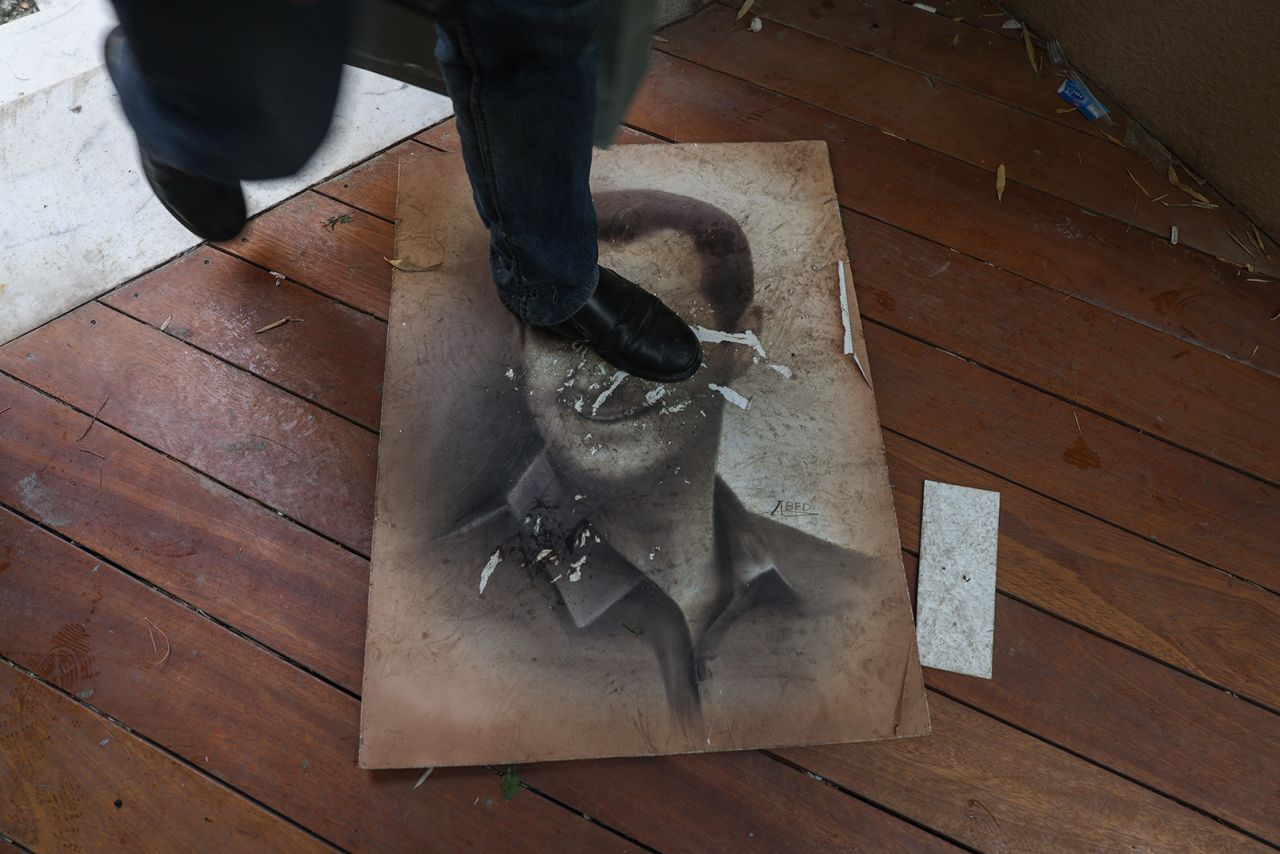
A Path Forward
As Syrians confront the horrors revealed at Saydnaya and other detention centres, international legal scholars have stressed the importance of preserving evidence for accountability.
Documents recovered from administrative offices at the prison may prove crucial in prosecuting those responsible for systemic abuses.
While the nightmare of Saydnaya may be coming to light, the journey to justice for Syria’s victims remains uncertain.
For those gathered outside the prison, however, the first step is closure.
As one man searching for his brother put it: “Even if he’s gone, I just need to know. After all these years, we deserve to know.”
